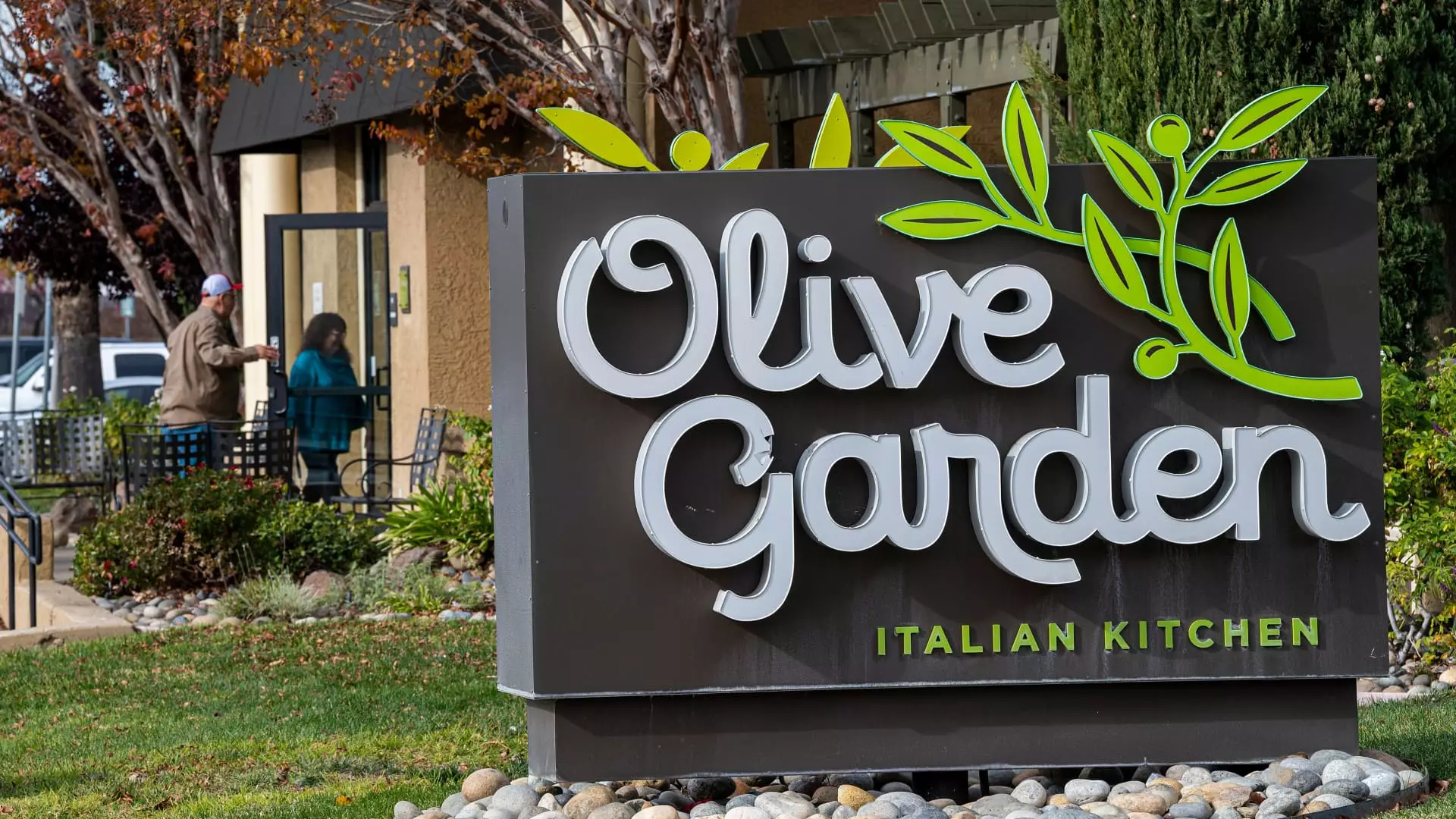Darden Restaurants has emerged as a beacon of resilience amidst the turbulent seas of the restaurant industry. The company recently showcased its financial acumen by surpassing Wall Street’s revenue and earning projections, embodying an impressive growth trajectory during a time when many are facing economic challenges. For the fourth fiscal quarter, Darden announced an adjusted earnings per share of $2.98, narrowly eclipsing the expected $2.97. This feat is particularly noteworthy, considering that the overall market sentiment is tinted with skepticism about consumer spending habits. With net sales soaring to $3.3 billion—thanks in part to strategic acquisitions and robust same-store performance—Darden has taken a commendable stride forward.
Strategic Acquisitions Fueling Expansion
What sets Darden apart is its calculated approach to growth through acquisitions. The addition of 103 Chuy’s restaurants not only diversifies its portfolio but strengthens its market presence in the casual dining sector. This strategic maneuver has proven successful, as reflected in the company’s 10.6% increase in net sales. As consumers increasingly revert to dining out as a form of self-indulgence, Darden is capitalizing on the moment by expanding its already celebrated offerings, like Olive Garden and LongHorn Steakhouse. These two brands account for a significant portion of Darden’s revenue, with Olive Garden alone contributing roughly 40%. The reported same-store sales growth of 6.9% for Olive Garden starkly contrasts with the broader consumer trends of contraction, showing that people are still willing to splurge on dining experiences.
Mixed Signals from Fine Dining
However, not all segments within Darden’s expansive portfolio are thriving equally. The fine dining branch, featuring renowned establishments like Ruth’s Chris Steak House and The Capital Grille, has shown a decline of 3.3% in same-store sales. This decline is a critical indicator that even the strongest brands can feel the pinch when consumers tighten their wallets. While the casual dining side flourishes, the fine dining sector is grappling with a consumer base that may be hesitant to spend on upscale dining experiences as economic uncertainty looms overhead. This juxtaposition raises questions about consumer preferences and spending behaviors, particularly as we see a dichotomy forming between casual and fine dining in today’s market landscape.
Future Growth Projections Offer Sunshine
What’s most encouraging about Darden’s positioning is its forecast for fiscal year 2026, predicting revenue growth of 7% to 8%. Notably, this estimate includes the impact of an extra week in the fiscal calendar—an exciting potential for incremental revenue. Adjusted earnings are expected to land between $10.50 and $10.70 per share, again showcasing Darden’s bullish outlook during a time rife with uncertainty. CEO Rick Cardenas remains undeterred in his commitment to this growth trajectory, stating, “Our strategy remains the right one for the company.” This statement, while optimistic, begs the question: are they truly recognizing the fluctuating sentiments of consumers or are they beclouded by the immediate success?
Innovative Partnerships and Shareholder Value
In yet another sign of Darden’s adaptability, the recent partnership with Uber Direct for on-demand delivery marks an important innovation in its service offerings. Piloting this initiative at Cheddar’s Scratch Kitchen could very well breathe new life into the brand, especially among younger, tech-savvy diners who favor convenience. The move is a strategic pivot that not only aligns with changing consumer behaviors but also fortifies Darden’s competitive edge in the fast-evolving restaurant landscape.
Furthermore, the authorization of a $1 billion share repurchase program demonstrates a strong commitment to shareholder value that underscores confidence in their strategic direction. This bold move sends a clear message that Darden is not merely focused on short-term gains but is actively cultivating long-term growth and stability.
In a market characterized by shifting consumer dynamics and economic challenges, Darden Restaurants has established itself as a formidable player with an eye toward innovation, strategic growth, and adaptability. Whether this strategy holds in the long term remains to be seen, but for now, Darden stands tall, well-prepared to navigate the complexities of the dining landscape.

